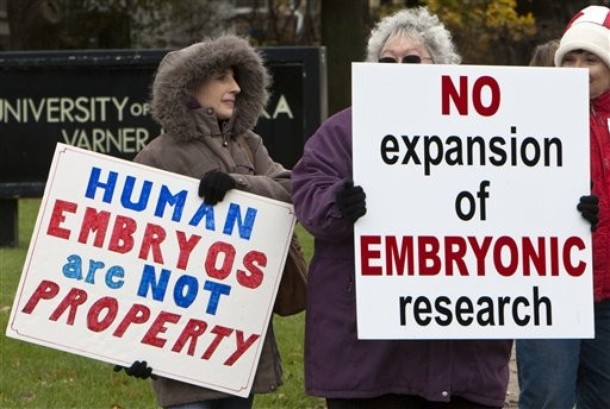There are an abundance of issues surrounding the methods of repairing and replacing human organs without the need of a human donor. For years the ethics and legality of stem cell research has been debated with everything from, the involvement of the government in regulating the technologies that come from the research, to, the extraction of the embryonic stem cells and how much power humanity should have over these things. In the case of cell-therapy only adult stem cells are used, so far, which avoids the issues of embryonic stem cells and the way they are retrieved because when extracting cells from an embryo the embryo is destroyed as a result. Some people would argue that the destruction of the embryo is robbing the potential of human life and should be considered murder. Finally, Bioprinting has shown to be more accepting among the masses. Although the organ would be synthetic it would still be genetically the same as the recipient. However, some people still argue that this is could make a human no longer natural and therefore, it is disturbing the natural order of life. With today's technology the issue of man playing the role of God is becoming more and more apparent and with bioprinting, the natural life span could be lengthened significantly and the natural flow of life could be altered. In theory, bioprinting could offer the ability for a human to replace any organ at anytime and perhaps even achieve near immortality. |
 Xenotransplantation also has a great deal of ethical issues. For one, the perfect candidate for cross-species transplantation with humans would be the very genetically similar chimpanzee. However, the chimpanzee is an endangered species and to have to kill them for personal use would be wrong. Even with pig to human transplantation, something not completely human is the result and this would be changing the image of God, which would go against the beliefs of most people. Also scientists can not really predict if the benefits of the organ would out weigh the health concerns that would come with an animal organ. Another issue is that pigs do not live as long as humans, and therefore, have faster aging organs, so a patient would only be receiving a temporary fix and not a permanent solution. |